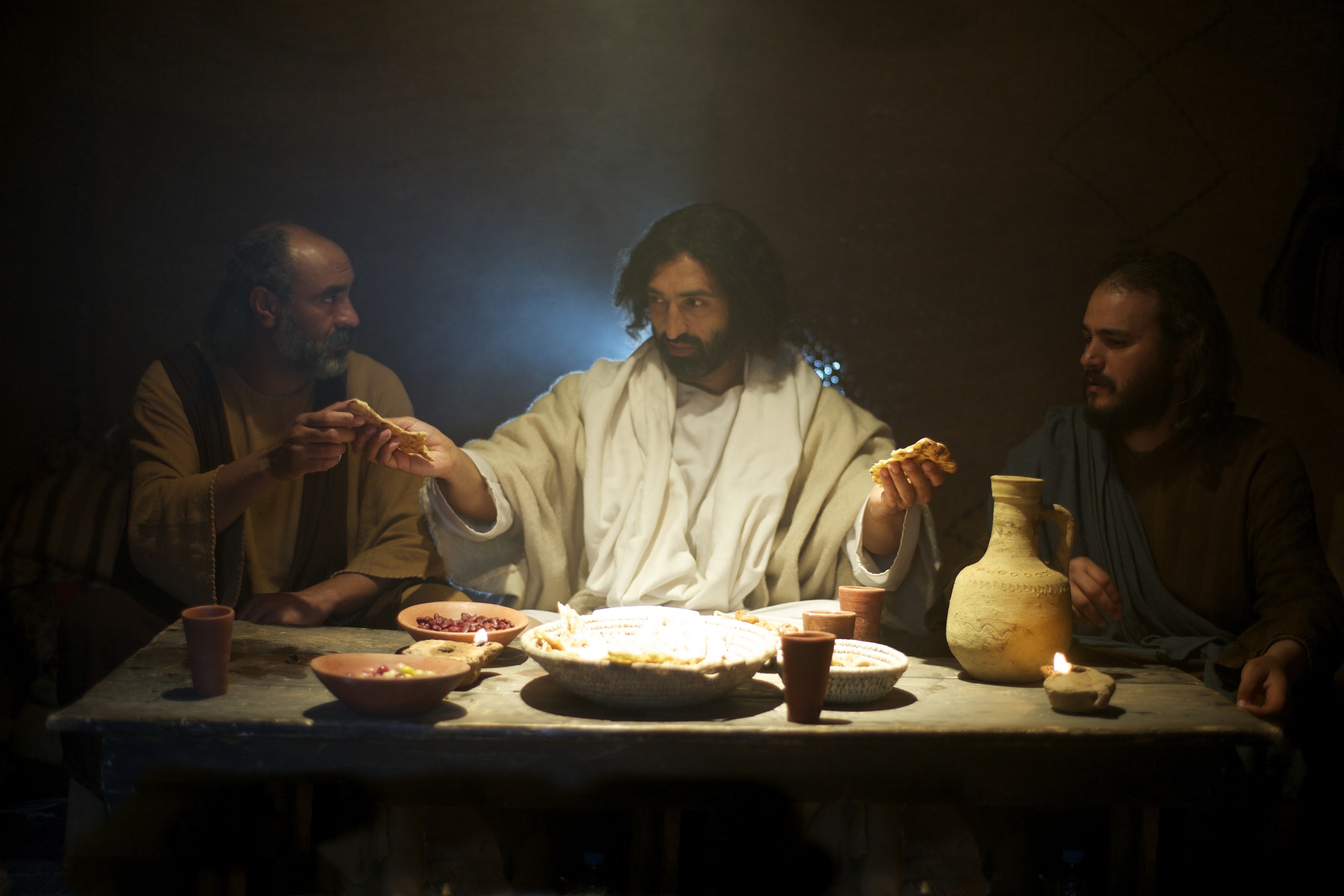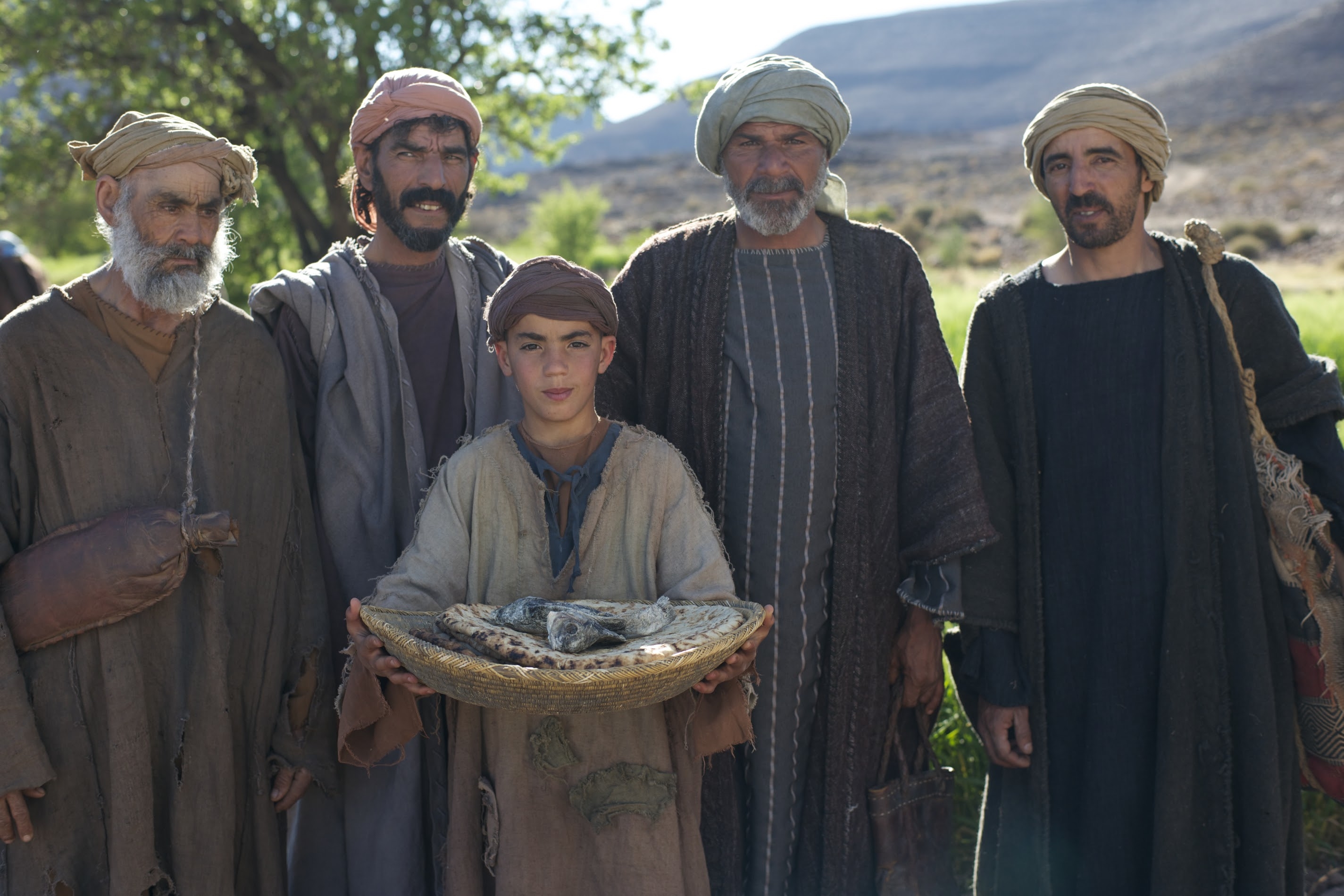A theology of hospitality
Hospitality is at the very heart of who God is, writes Anthony Clarke. Not only is God the host, who welcomes us, God comes as the guest

The pages of the Bible are full of examples of hospitality, many of which reveal dedication, service and cost. In the famous example in Genesis 18 where Abraham entertains the three mysterious visitors, two verses describe the preparation of Abraham, Sarah and the servants, but it would have taken hours, more even than allowed in Masterchef or Bake Off!
The practice of hospitality is deeply embedded in the customs, expectations and understandings of the culture; there is a sense that here was holy ground. The concept of hospitality can be a vital and helpful image or metaphor for understanding and exploring many different areas of our faith: it resonates deeply with the biblical narrative, allows us to think about things theologically and readily connects with our own practice and experience. Hospitality can help us develop a whole way of thinking about the world and, more importantly, of thinking about God.
When we think about hospitality I suspect we instinctively think about being a host; perhaps we recall occasions when we have sought to be a good host and perhaps it has gone well, or perhaps not! But to be a host implies there is a guest or several guests, it is always a relational term. What is fascinating is that in Greek, in the language of the New Testament, the same word means host and guest and also means stranger; it is xenos, from which we get our word xenophobic. As we read the Gospels we see the way that Jesus moves easily from being a guest, with Levi or Simon or Mary and Martha, to being a host as he feeds the crowds, breaks bread in Emmaus or provides breakfast on the beach. This movement between host and guest will be important as we think about our own practice, but it is also important as we think about who God is and what God is like.
Building on these examples in the Gospels, we can talk in a very profound way about hospitality being at the very heart of who God is, because it is so deeply connected with the experience of grace. So the father of the prodigal son who runs with open arms offers perhaps the most moving image of God who graciously and lavishly shows hospitality and welcome to us. By his hospitality, the father creates space for the son, and such space not only offers presence and welcome but the possibility of real transformation. This of course is risky and uncertain, but such is the nature of hospitality – we offer something as a gift.
But we recall how one New Testament term means host, guest and stranger. Hospitality at its heart offers a welcome to the stranger, those who are other than us, and different from us, and they become guests. This again takes us to the heart of God. God alone is divine and even though we are created in God’s image we are fundamentally other than and different to God; but in gracious hospitality God creates space for those who are other, for us.

But we need to push the image further. Not only is God the host, who welcomes us, God comes as the guest. This is at the heart of the Christmas narrative and the incarnation. Of course God made the world and so it belongs to him, but still in Jesus God comes as the guest, dependent on the welcome he is given or not given. To welcome a guest is to desire to enter their world not just for them to enter yours; it breaks barriers, challenges power and so is deeply subversive.
If hospitality helps us to think about who God is, it then helps us to think about who we are, and what we do. If in hospitality the stranger becomes guest, then the kind of spaces we offer as God’s people to everyone, but particularly to those who are strangers, matters deeply. This might be those in our communities who are marginalised, those who come to this country as immigrants, those children in need of fostering and adoption. More than that, when we listen to someone, really listen rather than the distracted half attention, we are offering the other hospitality, a space of welcome. When we worship together around the Lord’s Table, we are guests because Jesus is the host, but also have an opportunity to welcome others. When we engage in mission we are not simply giving a message of challenging injustice, we are offering hospitality, where we hold out nourishment and hope, but also where we give our very selves, as God does to the world.
This edition of
Baptists Together has a particular focus on experiences and issues of disability, and ideas ofhospitality help us here too. But our starting point cannot be how we welcome those with disabilities into our churches, for this instantly suggests those with disabilities are simply other than us. The starting point is to recognise that we all have degrees of disability and we are all welcomed by God.
But again we need to push our thinking further. Again, I am sure we begin by thinking of ourselves as hosts. We want to offer a warm welcome to those with disabilities, that they feel welcome. This might mean changing the building, changing our language and changing our priorities.
But this keeps us in charge. Hospitality is also about being the guest in a space where others are the host. This requires us to put power down, move ourselves out from the centre of everything and be dependent on others. It involves risk and requires significantly more vulnerability on our part, but then this follows the pattern of the incarnation. Hospitality at its best is always a two-way experience, for host and guest.
When I am host I offer the best I can; when I am invited as a guest I may take something as a present. But in both cases I don’t impose anything – I simply offer it as a gift.
The Revd Anthony Clarke is Tutorial Fellow in Pastoral Studies and Community Learning at Regent’s Park College in Oxford
This feature appears in the Spring 2020 edition of Baptists Together magazine
Some further reading:
Christine Pohl, Making Room, Recovering Hospitality as a Christian Tradition, (Eerdmans, 1999)
Elizabeth Newman, Untamed Hospitality: Welcoming God and Other Strangers (Brazos, 2007)
Brendan Byrne, The Hospitality of God: A Reading of Luke’s Gospel (Liturgical Press, 2000)
Thomas Reynolds, Vulnerable Communion: A Theology of Disability and Hospitality (Brazos, 2008)
Images | LumoProject.com |Lightstock.com
Baptist Times, 10/03/2020